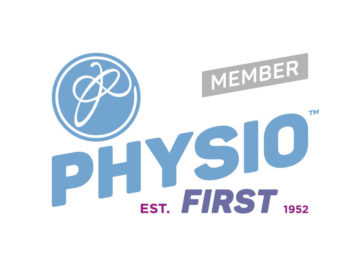-min--large.jpg)
Our latest blog explores the symptoms, causes, and our effective physiotherapy treatment options for plantar fasciitis, a common foot condition. Read more here.
Plantar fasciitis is a common foot condition characterised by pain in the heel, often described as a sharp or stabbing sensation that is worse in the morning or after prolonged periods of inactivity. It occurs when the plantar fascia, a thick band of tissue that connects your heel bone to your toes, becomes inflamed.
Symptoms of Plantar Fasciitis
The condition often manifests as a sharp or stabbing pain in the heel, especially in the morning or after periods of inactivity. The pain may subside with activity but often returns after rest. Difficulty walking or standing for extended periods is another common symptom, as well as stiffness in the foot, particularly in the morning.
Causes of Plantar Fasciitis
The exact cause of plantar fasciitis is often unknown, but several factors may contribute to its development, including:
- Overuse: Repetitive activities that put stress on the plantar fascia, such as running, jumping, or standing for long periods
- Tight calf muscles: Tight calf muscles can pull on the plantar fascia, contributing to inflammation
- Flat feet or high arches: These foot conditions can alter the distribution of weight on the plantar fascia, increasing stress.
- Obesity: Excess weight can put additional strain on the plantar fascia.
- Age: Plantar fasciitis is more common in people over the age of 30.
Physiotherapy for Plantar Fasciitis in Newcastle
While plantar fasciitis can be painful, it is often treatable. Common treatment options include rest, applying ice to the affected area, stretching exercises, custom-made orthotics, and physical therapy. Here at Gosforth Physio & Wellness, our experienced physiotherapists in Newcastle are dedicated to helping patients with plantar fasciitis. We offer a comprehensive approach to treatment, including:
- Gait analysis: Assessing your walking pattern to identify any biomechanical factors contributing to plantar fasciitis.
- Manual therapy: Techniques to release tension in the plantar fascia and surrounding tissues.
- Exercise therapy: Tailored exercises to strengthen the foot and calf muscles.
- Orthotic recommendations: Advising on appropriate footwear and orthotics to support your feet.
If you're suffering from plantar fasciitis, don't hesitate to contact our team today to schedule an appointment with one of our experienced physiotherapists. We'll work with you to develop a personalised treatment plan and get you back on your feet.













